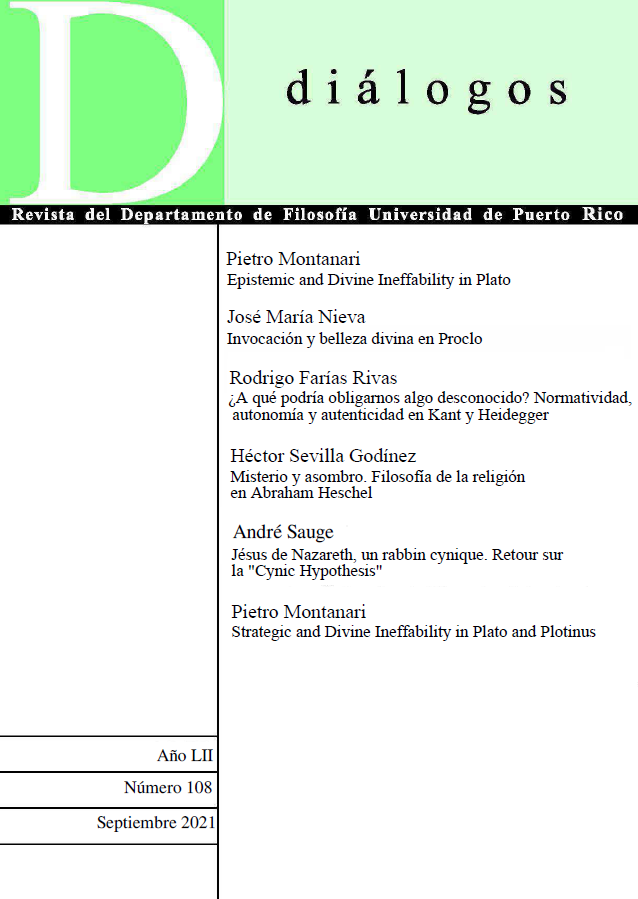Keywords
Plato
Neoplatonism
ineffability
metaphysics
theology
//
Neoplatonism
ineffability
metaphysics
theology
//
Abstract
Artículo dedicado al concepto de lo indicible en Platón en sus aspectos epistemológicos.

This work is licensed under a Creative Commons Attribution-NonCommercial 4.0 International License.
Downloads
Download data is not yet available.
Most read articles by the same author(s)
- Pietro Montanari, Strategic and Religious Ineffability in Plato and Plotinus , Diálogos: No. 108 (2021)
Similar Articles
- Pietro Montanari, Strategic and Religious Ineffability in Plato and Plotinus , Diálogos: No. 108 (2021)
- Andreas Avgousti, Plato‘s uneasy founding: On reputation in the Laws , Diálogos: No. 98 (2015)
- Étienne Helmer, Desplazar y reconfigurar los lugares: Una operación política de Platón , Diálogos: No. 98 (2015)
- Yuiza Turey Martínez Rivera, The spatiality of justice in Plato: the case of the warriors , Diálogos: No. 106 (2020)
- Étienne Helmer, PLATO AT THE MARKETPLACE , Diálogos: No. 103 (2018)
- Annie Larivée, «An Unexamined Life is not Worth Living for Human Beings» , Diálogos: No. 98 (2015)
- Sergio Rojas Peralta, BODY, PALINGENESIA AND THE LIKE. ON SHAME FROM PLATO , Diálogos: No. 110 (2022)
- Francisco L. Lisi, La ciudad más cercana , Diálogos: No. 98 (2015)
- Riccardo Caporali, The (failed) education of the lector philosophus , Diálogos: No. 100 (2016)
- Monique Dixsaut, Del hombre gregario al animal gregario. De Platón hacia Nietzsche, y vuelta , Diálogos: No. 98 (2015)
You may also start an advanced similarity search for this article.

